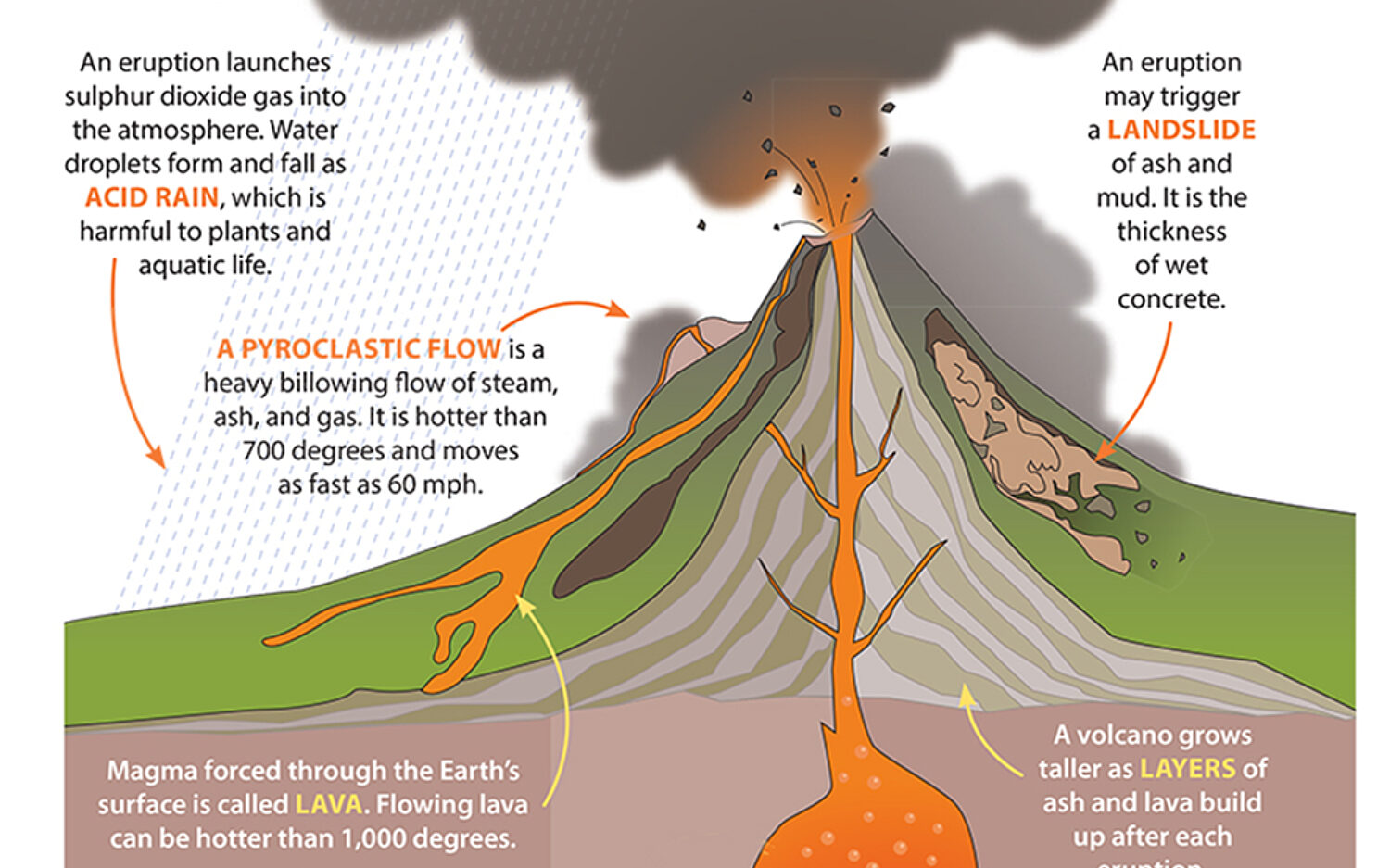Volcanoes Spew: Blobs of lava and particles sling into the sky. A volcanic bomb of broken rocks, steam, gas, and ash hurls into the air. An avalanche of snow falls from the volcano at hurricane-force speed. The particles ejected from the peak are heavier than air. They are hot and toxic. Most will eventually fall to the ground close by. But some drift into the atmosphere, beginning a journey around the globe.
Blowing “Smoke”: That’s not exactly smoke coming out of the volcano. It’s a mixture of water vapor, carbon dioxide, sulfurous gases, and ash. Sulfurous gases smell like rotten eggs. They turn things egg-yolk yellow. The color change comes from sulfur crystals forming on surfaces.
About Ash: Volcanic ash is frozen lava. In an explosion, lava shoots out of the ground like a canon. Hot, liquid lava freezes into solid flecks of glass called ash. It falls from the sky like drops of rain. Ash weighs more than rainwater. Ash particles are easily carried by wind, and can travel long distances.
Not-So-Friendly Skies: Beware, airplanes! An aircraft’s hot engine can melt the ash back to lava—changing the solid back into a liquid state. Liquid lava can clog an airplane’s engine.
Catch the Drift: Smoke and ash soar. When Indonesia’s Tambora volcano erupted in 1815, an ash cloud drifted around the world. That year was called the “year without summer.” Temperatures around the globe were 5.4 degrees cooler than normal.
Paint the Sky: A purple sunset means a volcanic eruption. Particles blown into the sky are scattered by sunlight. This makes the sky look purple.
Lookout, Land! When a volcano spews, the surrounding environment changes big time. Plants growing near a volcano can be destroyed. Thankfully, volcanic soil is very rich. That makes new growth possible.
Careful, Critters! Ash increases water acidity and temperature. This can harm fish. Volcanic glass ash can hurt delicate insect wings. A bird’s body is very sensitive to volcanic gases. Those that survive an eruption may lose their nests to lava, fire, or dangerous gas. But birds are adaptable. If they can’t return home, they’ll make a new nest nearby. Within weeks of an eruption, they’ll start growing their families again.
















